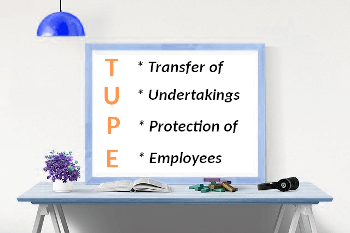Transfer of Undertaking.
What happens to your employment rights where a transfer of the business (or part of it) is taking place ?
Under the European Communities (Protection of Employees on Transfer of Undertakings) Regulations 2003 your rights are protected
How do you define a transfer?
The legal person running the business must have changed. The business previously carried out by your old employer must now be carried out by your new employer. The business must be transferred as a going concern.
What rights get transferred?
All of your rights under your contract of employment are transferred and become the responsibility of the new employer, with the exception of pension rights.
Pensions, dismissal and consultation
Pension rights do not transfer, except for social welfare pension entitlements. All occupational pension schemes under the Pension acts are protected and rights do apply.
Dismissal
The transfer of the business is not a reason for dismissal. If the employer can show economic, technical or organisational reasons for the dismissal then it may be shown to be fair. Each case stands on its own merit. In many circumstances some employers use the transfer to dismiss employees for individual reasons which are not always fair.
If you believe you have been unfairly dismissed, please contact us immediately. You have to make you claim within six months. It takes time to put a valid case together. Don't delay.
For more on unfair dismissal see here
Consultation
The employer must consult with employers in circumstances where there are 50 employees or more. The Employees (Provision of Information and Consultation) Act 2006 provides a general right to information and consultation for employees from their employer on matters which directly affect them.
Under the European Communities (Protection of Employees on Transfer of Undertakings) Regulations 2003 all employees , irrespective of the numbers employed,must be given the following information:
- Where the employees are in a union,the employer must provide the union with details of the reasons for the transfer; the date or proposed date of the transfer; and the legal, economic and social implications for the employees , within 30 days before the transfer,
- Where the employees are not in a union, the employer must give these details in writing to each employee within 30 days before the transfer
The employer must also consult with the employees’ union ,where there is one, or with the chosen representative(s) of the employees.
What does TUPE stand for?

TUPE stands for Transfer of Undertakings Protection of Employees.It is a shorhand way of referring to the European Communities (Protection of Employees on Transfer of Undertakings) Regulations 2003 . It is important to be aware of your rights as an employee when the business of your employer is being transferred to another owner. You must ensure that your employment rights are protected. You cannot take it for granted that TUPE will appply. It can be difficult to decide in circumstances where not all of the assets or employees are transferred. Not every transfer of business is straightforward. You should seek professional advice if in doubt. You do not want to lose the years of service which you have built up with your current employer.
Where can I get more information?
Contact us for a free time limited consultation.
Click on the orange Yes! Tell Me More button below and we will contact you at a time that suits.
Guide to EC Protection of Workers on Transfer of Undertakings Regulations, Download here
Guide to The Employees (Provision of Information and Consultation) Act 2006 Download here
Spread the knowledge. If you found this article useful, please like and share using any of the social buttons below.







